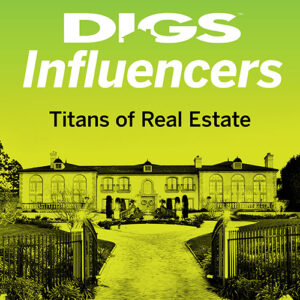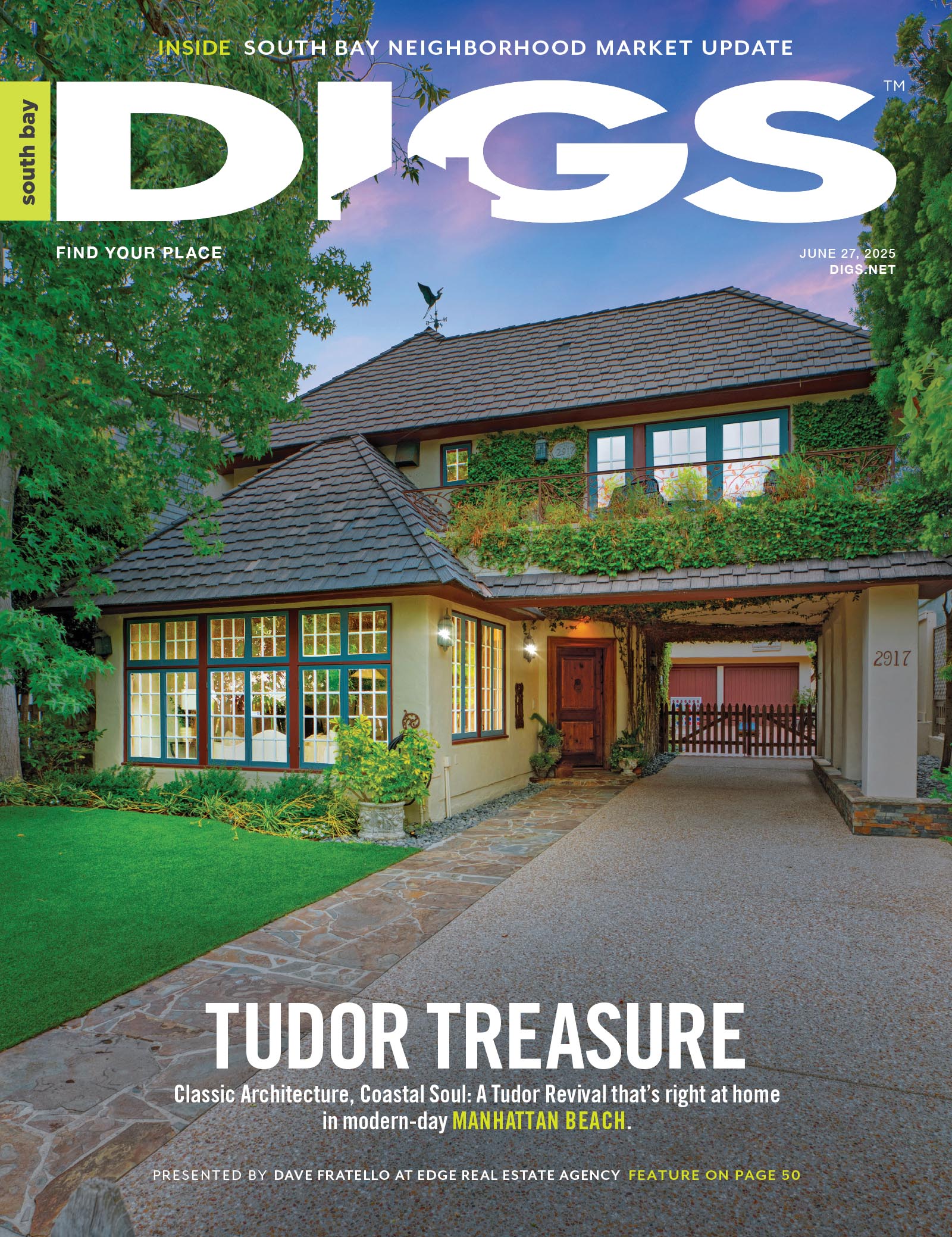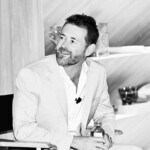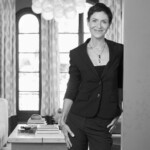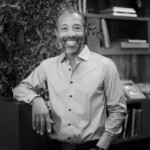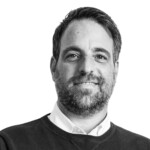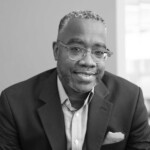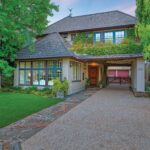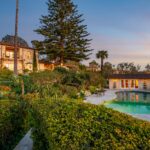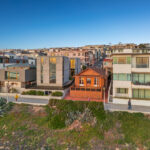Table of Contents
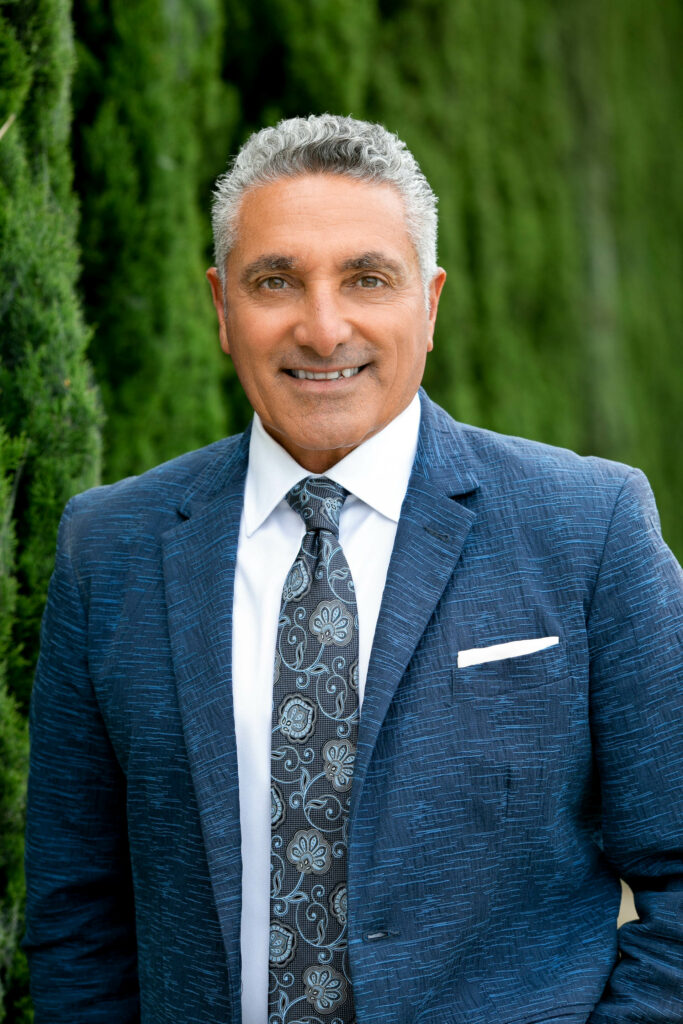
In this Episode
You’ll learn how adversity and disadvantage while growing up gave Alex Abad the inspiration to realize his dreams and give back to others. Finding his way into real estate through a cleaning business started with his wife, learn how Alex Abad became the “real estate mayor” of his hometown in El Segundo, California and how taking one photo of a beach sunset changed his business forever. It’s a masterclass in branding and creating a legacy for your business. We know you’ll enjoy it – leave us a review!
Top Quotes
“I don’t necessarily look at it as, as failing. I’ve learned even when I was younger and not to set myself up to fail, but allow myself to just start all over again. And it wasn’t about failing or falling, but to me it was always, how do I recover from this? How do I stand up, pick up the pieces. And make every step count from that time on and then create what I really need.”
Tweet
“I guess I have a unique opportunity to, to know what it is to have nothing in Argentina. I never had a toy, never owned a ball, a little soldier toy, a bicycle. You had to make your own little toys. You break up a little piece of wood, and that would be your little boat that would float down the curb to the end of the street. And that was, that was my toy.”
Tweet
“When I came to the United States, it was like everything was available. And I told myself that someday I was gonna work really hard to make sure that it had enough to provide for myself and those that were less fortunate.”
Tweet
“Basically 90-95% of every new home that was built in the South Bay, our company was doing the construction cleaning. So I interacted with the contractors and the real estate agents. So I knew a lot of the, the agents who were already in the business for many, many years as a result of my previous company, and I’d loved what they were doing and I thought there was fascinating life and business.”
Tweet
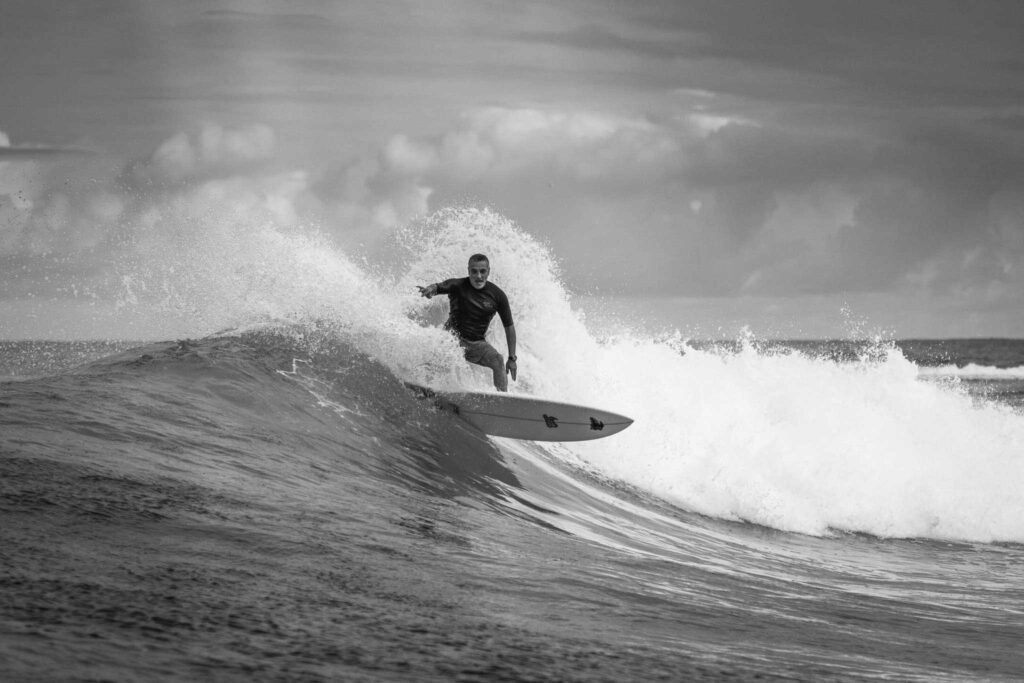
Episode Resources
Follow Alex Abad
Follow along with Alex Abad at: AlexAbadRealEstate.com
Alex’s Vimeo Channel: https://vimeo.com/user61384518
Full Episode Transcript
Alex Abad: [00:00:00] I don’t necessarily look at it as, as failing. I’ve learned even when I was younger and not to set myself up to fail, but allow myself to just start all over again. And it wasn’t about failing or falling, but to me it was always, how do I recover from this? How do I stand up, pick up the pieces. And make every step count from that time on and then create what I really need.
[00:00:44] Warren Dow: [00:00:44] Welcome to DIGS Influencer Podcast, the Titans of Real Estate. The show that provides direct access to the real estate industry’s top movers and shakers is they share invaluable insight on how to best navigate and succeed in any market. I’m your host, Warren Dow, founder and CEO of m3 media and Publisher of DIGS magazine.[00:01:16] Thank you to our sponsor, Bo. Concepts. Let me introduce our guests Mr Alex Abad, welcome to digs influencer podcast. [00:01:26] Alex Abad: [00:01:26] Warren, thanks for having me. It’s a pleasure to be here, man! [00:01:28] Warren Dow: [00:01:28] So I’m looking forward to our chat here, but first I want to introduce you to our audience. You’re a successful entrepreneur. You’ve consistently ranked number one or two, a top producing agent at Palm Realty boutique in the last four years. [00:01:45] You closed last year, 2017 over a hundred transactions in residential and commercial, you have lifetime sales volume over 280 million in real estate. You’ve been a big, big supporter of, you know, community and charitable organizations. The Education Foundation, you’ve personally contributed over, you know, $200,000 and, uh, donations. [00:02:11] You along with Nick Schneider were one of the founding members of Give Back Homes, which has had great success and giving back to the community. [00:02:21] Alex Abad: [00:02:21] Nick is the one who actually brought me into and introduced me to Give Back Homes, and I’m extremely grateful for that. They’re an amazing organization and I’m just very happy to be associated with it. [00:02:31] Warren Dow: [00:02:31] And last, but certainly not least, you are in fact, what I call the defacto mayor of El Segundo. [00:02:40] Alex Abad: [00:02:40] Well, you have an amazing mayor. Now drew drew boils, which is a good friend of mine. [00:02:45] Warren Dow: [00:02:45] Dr Matt droves. Just kidding. No, I mean in the sense that you, you are a real life. And this is the title of our podcast. You know, the influencer podcast. [00:02:53] You are a real life influencer in the city El Segundo. [00:02:57] Alex Abad: [00:02:57] thanks Warren. Well, it’s about your legacy. It’s about your home and it’s about your future. And it’s about your legacy. So yeah, I’m involved in every one of those aspects of life today, tomorrow, and the future. [00:03:12] Warren Dow: [00:03:12] So, Alex, tell us a little bit about you. Where did you grow up? [00:03:18] Alex Abad: [00:03:18] originally? We came from Argentina, my mom, my dad, 1968. We left everything. Of course, we didn’t have much at that time. My mom had to sell her shoes to put food on the table, and my brother and I, along with my mom and dad, we, uh. Made our way over to the United States, came into California, landed in Hawthorne, and that time all my dad went to work in El Segundo and my mom started working in a Hawthorne at that time. [00:03:46] So yeah, that’s, that’s how we got here. And at the age of, about. Tanny Leben I found a Manhattan pier and I started surfing at that age. Nice. And, uh, that’s what I, when I fell in love with the ocean here and in the lifestyle [00:04:01] Warren Dow: [00:04:01] I, Manhattan was so different back then. [00:04:02] Alex Abad: [00:04:02] Right. Completely different. So different, like night and day. [00:04:07] Warren Dow: [00:04:07] So tell us a little bit more about your family. [00:04:09] Alex Abad: [00:04:09] Yeah. You know, my mom, a dad, uh, my mom was, uh, in Argentina was a concert pianist and as an a music teacher, my dad had his own business for a long time until he couldn’t compete with the government. And then everything went South from there, which created the, the need to, to make a change. [00:04:26] And that’s how we ended up here. They became extremely hard workers here in the US and it was an opportunity for us to break the chains of poverty. And so they, they give me the opportunity to take the reins at some point to make a change. And they certainly did. [00:04:43] Warren Dow: [00:04:43] So it’s in your DNA. [00:04:44] Alex Abad: [00:04:44] This is, I, I guess I have a unique opportunity to, to know what it is to have nothing in Argentina. [00:04:55] I never had a toy, never owned a ball, a little toy salts, little soldier toy, not escape or not a bicycle. Not a toy. You had to make your own little toys. You break up a little piece of wood, and that would be your little boat that would, you know, float down the curb to the end of the street. And that was, that was my toy. [00:05:12] So when I came to the United States, I saw this like incredible. It seemed like Disneyland was literally where I lived. It was like everything was available. And I told myself that someday I was gonna work really hard to make sure that it had enough to provide for myself. And, and those that were less fortunate. [00:05:32] Warren Dow: [00:05:32] That’s great. Great, great backstory there. So what did you do before you got into real estate? [00:05:36] Alex Abad: [00:05:36] Well, before I got into real estate, my wife and I were fortunate enough to start a company years and years ago, which we held for 24 years. Started with a $5,000 credit card, which then turned into a $5 million company. [00:05:49] It was primarily a large janitorial company that had many different, uh, divisions within that company from, from commercial medical. A construction, cleaning, maid service and carpet flooring and construction cleaning. [00:06:04] Warren Dow: [00:06:04] Well, some 5,000 on the credit card, the 5 million sales. That’s, that’s pretty impressive. [00:06:09] Alex Abad: [00:06:09] Yeah, it wasn’t overnight. It took some time. But again, it’s a testament to the opportunity that somebody has here. If you’re creative and if there’s, one thing I learned is that you always want to create the change you want, cause nothing is. Nobody owes you anything. Yeah. There’s no entitlement. At least that was my impression. [00:06:27] I had no entitlement. If I wanted something, I had to earn it. I had to create it. And so again, it’s a testament to the ability of any individual having the opportunity to create something for themselves. And it, it did, you know, it took some time, but that’s what we developed and we were able to employ, you know, hundreds of employees and create a lifestyle for them as well. [00:06:48] So it goes pretty deep. [00:06:51] Warren Dow: [00:06:51] So as you looked at starting and creating something, a business, was there anything specific that that drove you to, to do the commercial cleaning type service or, [00:07:01] Alex Abad: [00:07:01] well, what led to that was in 1990 I was working for Hughes aircraft and I got caught in that massive layoff that ER, you know, thousands of people got laid off and then you’re out. [00:07:12] You know, basically trying to compete for the same position with thousands of other people. So I told myself, I gotta do something different. I had two little. You know, children at that time. And I felt that, you know, going into business for myself was the best thing to do. My wife, who is, uh, an amazing, well, she’s a cleanaholic, you know, she just loves to clean and she had this little side business of cleaning houses. [00:07:38] And so on one end, I was actually working on developing a surfing magazine at the time, but it was a very expensive proposition. And she had this idea of creating. A small little, you know, clean business and, and the probability of success was, was greater on her side than on my venture. So I put [00:08:00] Everything I was doing on the back burner, and the decided to help her develop that little side business into what I had no idea, which was like eliminate stand that turned into eliminate factory within six months. You know, she was generating over $100,000. Wow. So yeah, it was really, really interesting. [00:08:19] You know, when we sold our company, we sold 80% of it, I think that we were providing, uh, just even on the, on the house cleaning, we were doing 600 homes a month. [00:08:28] Warren Dow: [00:08:28] Wow. Very impressive in the story that you’re telling. I’m always, I always admire people that come from adversity, but more so the people that come from adversity that use it as a gift, I really understand it. [00:08:43] Right. And use it like, you know, you’re a little piece of wood that turns into a boat and having that creativity and you have to make it on your own. You have to make it, you have to, nothing’s given to you. And it’s a good life lesson for everybody. [00:08:55] Alex Abad: [00:08:55] It is. And it served me well even in, you know. And the business that I’m in now, obviously, you know, we’re not doing janitorial, although we sold 80% of the company. [00:09:06] She runs the other 20% even in real estate. One of the key factors, if anybody’s going to be successful, you always have to be in a constant state of creating. If you’re not creating. There’s a high probability you will not succeed in real estate. I mean, you can really break it down and that’s plenty of material for another podcast, but, but you really do have to be constantly be creating. [00:09:32] And I know that you understand that in the business that you’re in. [00:09:35] Warren Dow: [00:09:35] Yeah, absolutely. And tell me about a failure because we’re talking about success, but failure sometimes is the quickest and surest path. To success, right. In a weird way. Sure, sure. We had one or two or [00:09:49] Alex Abad: [00:09:49] many. I don’t necessarily look at it as, as failing. [00:09:53] I’ve learned even when I was younger and not to set myself up to fail, but allow myself to just start all over again. Yeah. It wasn’t about failing or falling, but to me it was always, how do I recover from this? How do I stand up? Pick up the pieces and make every step count from that time on and then create what I really need. [00:10:17] So those opportunities in life when doors seem to just, you know, shut run in your face or things come crumbling down when you least expect them, they could rearrange your entire life. Yeah. They can rearrange your objectives and your perception and if you allow it. Your stuff to learn from it. You come out a lot stronger, a lot wiser, and then you can handle any other quote-unquote, failure from there on a lot more successful. [00:10:50] Warren Dow: [00:10:50] I agree. The failures, they’re exceptional opportunities to learn, right? Exceptional. And, and, and it’s the best kind of learning. Of course, you know, cause you can read and study, but when you do and, and you fail, you learn and, and hopefully you don’t do that. Or you do it a little differently and what you’ve learned, [00:11:08] Alex Abad: [00:11:08] right? [00:11:09] Well, it’s not a natural feeling, right? So nobody wants to, nobody wants to fall down. Nobody wants to get hurt. You know, I raced motocross. And if you want to complete a course, and in this case, I race tracks mainly and tracks. There’s different parts to every track, and there’s Johnson, there’s tabletops and there’s doubles and so on and so on. [00:11:30] And they will challenge your ability and your skillset. And it’s not whether you’re going to. Fall is when you’re going to fall and you just know that there’s going to be some collateral damage maybe. But then you’re going to learn from that. You’re going to learn about, you know, how fast you have to take that jump the next time so that you can clear it. [00:11:50] And when you clear your landings are just super smooth. It’s really nice. But when you come up short, uh, ouch. Ouch. Yeah. [00:11:59] Warren Dow: [00:11:59] So like when did you get your real estate license? [00:12:02] Alex Abad: [00:12:02] So my wife and I decided to make a life changing decision to sell the company that we had. We ended up selling 80% of the company in 2003 and then I took about a year. [00:12:15] Year and a half off of basically not doing anything except what I really want to do. A lot of surfing, a lot of traveling and, and then to begin to decide what I was going to do from here on real estate was something that I’ve always enjoyed because a part of our business before that was providing construction, cleaning to a lot of. [00:12:36] Basically 90 to 95% of every new home that was built in the South Bay. Our company was doing the construction cleaning. So I interacted with the contractors and the real estate agents. So I knew a lot of the, the agents who were already in the business for many, many years as a result of my previous company, and I’d loved what they were doing and I thought there was fascinating life and business. [00:12:58] And so on. So I decided at some point, you know, I think I’m gonna get my real estate license. I have no idea. I had very little knowledge about it, but I think I’d like to do that because I’m, I’m somewhat of a people person. And I ended up getting my license in 2005 and then I called Jack Gillespie, who was with South Bay Brokers, owners of South Bay Brokers at the time, and asked him who he recommended I hang my license with. [00:13:22] So they brought me on board and said, no, we, we’d like you to, you know, hang it here. So I did. But again, my perception of what I needed to do in real estate was completely different than what their requirement was for an agent. For me, if I thought, Hey, you know, if I can just do maybe one transaction a year or two, that’d be, I was going to be very happy because I was in a position in my life where. [00:13:43] I didn’t really have to sell real estate to make a living that was not the business model for South brokers. And they, they clearly stated to me that it was going to be, you know, you going spend a lot of hours and we had nobody that had performed in, in, in that little of, uh, you know, that just wasn’t gonna work. [00:14:00] So actually I was disappointed. I actually went home and told my wife, I don’t know if I want to do this. Because I know I know the type of person that I am and it sounds like I’m going to have to like dive in [00:14:11] Warren Dow: [00:14:11] and in. There’s only one way for you. It’s all in, or I’m either [00:14:16] Alex Abad: [00:14:16] or not. It took me about almost a week. [00:14:19] I had to like digest the whole thing. Do I want to. Just throw myself into it and I ended up deciding, you know what, I’ll throw myself. I’ll give it 100% I have no idea what the outcome’s going to be, but at least I know that I’m giving it all and here I am. [00:14:36] Warren Dow: [00:14:36] So how long did it take you to, for your first sale, tell and tell us about that. [00:14:41] Alex Abad: [00:14:41] It, it only took me within the first, I think a month that I was involved. Because I had a lot of connections and people knew who I was and the quality of an of individual that I was. So they knew that with Alex, they knew what you’re going to get for South Bay Brokers. The first year I was rookie of the year, at that time, South Bay Brokers had 150 agents approximately, and I was rookie of the year. [00:15:06] The first year. The second year, I had another great year, and I think within, within the first. Three, three years. I was in the top 25 there. And then shortly after that I started in Manhattan beach off of supple, but are there. And then I decided to open up an office in Hermosa and Nick Schneider and myself got involved. [00:15:32] And that’s where we met. Exactly. And then shortly after that, I decided to open up another office in El Segundo [00:15:39] Warren Dow: [00:15:39] and that puts you on a whole nother trajectory. Right. It did. Um, so tell us about your decision to go back to where it all started in a sense, and to focus and say, this is going to be, you know, my turf kind of thing. [00:15:57] Alex Abad: [00:15:57] Right? Yeah. So it’s an interesting decision because when I first started in real estate in 2005, they can, the market was kind of on a downward. Trend. And, and yet El Segundo was known for being very clique-ish, very tight, extremely tight. And so I didn’t start out in El Segundo for that reason. I wanted to start out in, you know, in the quote-unquote, the larger area of the South Bay and allow myself to be established. [00:16:22] And, and I thought I had accomplished that over the four, four or five years. And then I decided to, to establish most of my business, if you will, in El Segundo. Cause that’s where I lived and that’s where I raised my kids. They went from, you know, kindergarten through high school there. So I was also known in the town and I felt that I was going to have, um, maybe a good opportunity there to kind of build a pretty decent real estate business there. [00:16:48] Not everybody thought that though. Because it’s such a small town with an average listing, a number of listings. At that time, it was probably anywhere between 12 and 22 and then as a market got better, average number of houses for sale, it averaged between eight to 11 sometimes it was only like five homes for sale, single-family homes in the entire town. [00:17:10] So you know when you have. 24 agents, you know, you have to really consider who, who’s going to be making a living. But interesting enough, Elson Gunn has been very, very good to me. [00:17:21] Warren Dow: [00:17:21] You’re now working with your daughter, Amie? [00:17:23] Alex Abad: [00:17:23] Yeah. So Amie came on board, and this is now her. She’s going on her maybe third, third, third year, fourth year with me. [00:17:32] She’s full-time. She’s a mother of four beautiful little girls, and she’s doing tremendous students. Great. Hardworking mom. [00:17:39] Warren Dow: [00:17:39] So did you recruit her? She would she see the success and say, all right, pops, teach me. [00:17:45] Alex Abad: [00:17:45] It’s not like recruiting, you know? You know what I mean? You can see her talent and she’s an amazing individual with tremendous people skills. [00:17:53] And so at that time she was managing the good stuff. And El Segundo. And everybody loved her and everybody loves her, period. She’s just like a ball of sunshine. So I told her, I said, Hey, you know, why don’t you, you know, once you get your, you know, real estate license and come, come work with me full time, I think you would do really well. [00:18:13] So she did. She’s a really good learner and I’ve had the opportunity just to sit with her and teach her a lot of things that I, that I’ve learned and she’s a really wise, really sharp and to term no doing really, really good. That’s awesome. Yeah. Yeah, it is. [00:18:30] Warren Dow: [00:18:30] So here’s a question I like to ask, and you know, I’ve probably asked this to you before in our travels with like, what differentiates you from, you know, everyone else? [00:18:40] Alex Abad: [00:18:40] I think what differentiates me is that it’s the quality of the brand. You know, the business of real estate has nothing to do with selling houses. Selling houses is the byproduct of real estate. The business of real estate. Is you, you are the product. There’s over 3,500 agents in the South Bay. If you are a ketchup bottle and an aisle in the supermarket and somebody is looking for some ketchup, you have to decide how you’re going to stand out in that aisle with 35 other ketchup bottles. [00:19:19] And so the business of real estate is you becoming such a product. That at the end you become the chosen one. So that means you have to be highly likable, highly desirable, highly knowledgeable. Obviously, you have to be trustworthy, and so you have to have all of that and it just doesn’t happen. Some things, you either have them or you don’t have them, but what makes me different or separate. [00:19:52] Is it I, I really just strive to be the best. I have really no desire to be like the biggest, even though sometimes we agents like to qualify themselves as like, you know, number one, so on and so on. I, I really kinda like shy away from that. I really want to be known for being the best, and I really do believe, and this may sound kind of weird, but it’s not meant to sound odd. [00:20:19] I believe that I am the best at what I do above others. If I did not believe that I should be referring somebody else for the job, [00:20:29] Warren Dow: [00:20:29] love it. You know? And you and I align in so many different ways. Alison, when we first met, we talked about brand and you know, we have the same mindset in that, you know, the ketchup bottle analogy in this day and age of connectivity and digital and shortcuts and content and video, and. [00:20:48] Podcasts and social media and blah, blah, blah, blah. It’s like everyone’s looking for the quick fix, the quick, you know, success. And the old school has never been more the new school in the sense that brand is, it’s always been about brand and about differentiating. And it’s always been about trust, right? [00:21:10] Any transaction, any industry you need to earn trust. Right? And. And brands have always demonstrated the ability to do that better than any anybody or anything. And thus they have repeat, recognize, you know, the recognized and repeat customers and what have you. But it’s far and few in between that, that agents in this business recognize the importance of that. [00:21:37] Alex Abad: [00:21:37] Yeah, you’re right in what happens is that, and I see it in a lot of agents, especially young young agents, they want to get. To quote-unquote the top super fast. They want to get in and I mean, who wouldn’t? Right? But it’s real estate is one of the hardest things you’ll ever do. The business of real estate is the hardest thing you’ll ever do. [00:21:58] It’s the type of business that is probably the business that you’re going to spend a lot more money in. Just about anything else that sometimes you don’t see tangible results immediately. And it’s, it’s the type of business that. Sometimes you only have about five minutes not to get somebody’s email and phone number. [00:22:18] You got five minutes to get their trust. If you can get their trust, you’ll probably have an opportunity to get their name and phone number. But what I see, it’s, it’s sometimes it’s backwards. People want to get people’s names and numbers and, and that’s really not the way to go. At least for me, it isn’t. [00:22:36] Warren Dow: [00:22:36] It’s not so much what you say all the time. It’s what you do. And you know, you’ve got a great quote. I don’t know if this is your exact quote, but you’ve said your greatest achievements are the things you do for others. [00:22:49] Alex Abad: [00:22:49] Correct. And that is my quote. [00:22:51] Warren Dow: [00:22:51] So great. So [00:22:52] Alex Abad: [00:22:52] that’s what I live by. [00:22:53] Warren Dow: [00:22:53] You know, digs and myself at the same sort of mantra in that it’s always about to get someone’s time and attention and or ability to earn trust. [00:23:04] You have to exchange value. You have to, it has to be about, you know, value in doing it just as you as your quote for others, not for yourself. Right. That segues into your, you know, which I think you’ve done a great job with this whole, the tower 60 thing, which I want you to talk about, but that embodies really something you’re doing for the community. [00:23:26] Creating a, a value exchange. And you know, something that’s, that’s for the community. It’s about that. [00:23:33] Alex Abad: [00:23:33] Sometimes people ask me, what’s your greatest achievement? You can break him down. Cause it’s not just one thing. You know, there’s personal achievement. There’s an achievement as an entire, you know, my whole life. [00:23:44] But in a nutshell, for me, my greatest achievement is looking at my life and recognizing. How I am giving back what I’m giving back. My greatest achievements is not what I’ve earned. It’s what I’ve given away, what I have given back. That’s my greatest achievement. So I evaluate my greatness, but what I give, not by what I get, and I pray that I continue to do well because the more that I can get. [00:24:17] Is the more that I can give. And that’s just the way that this little kid who grew up with nothing has decided to function in today’s world. It doesn’t work for everybody. It’s my life. It’s my little story, you know? But that’s the way that I’ve kind of set it up for myself, because that’s what makes me feel really good. [00:24:39] And so, so yeah. So that’s, that’s really the way how to interpret, you know. My greatest achievements are the things that I do for others. [00:24:50] Warren Dow: [00:24:50] Yeah. That’s powerful. That’s great. And I think this is why you and I align on so many different levels because I think we go to market in the same way. And you know, we always want to be in a position to give more value than we ask in return. [00:25:02] Alex Abad: [00:25:02] Right. [00:25:03] Warren Dow: [00:25:03] That feels good. You know, you want to feel good about what you do and be passionate about it, and that’s a great, yeah. Thing. Right. It never gets old. [00:25:10] Alex Abad: [00:25:10] Yeah. I’d rather people look at my life and say, Oh, not so much like, Oh wow, look what he’s got. I would rather them look at me and go, wow, I can’t believe he did that. [00:25:22] He just, why does he do that? You know? I would rather have that perception than the other. [00:25:32] Warren Dow: [00:25:32] Excellent. So how important do you think it is. To have local market or and or neighborhood sort of knowledge. [00:25:41] Alex Abad: [00:25:41] It’s extremely important. And that’s the part of the brand that has to have the knowledge. Because if you’re knowledgeable, then you are desirable. [00:25:55] And if you’re desirable, then you’re likable. And if you’re likable, it just, it just feeds itself. So you have to have the knowledge, you have to be able to, and I’m not talking about. Information cause we’re all swimming in a notion of information. You have to be able to provide knowledge about something that’s specific to that individual who may be considering an area, a home, or they’re looking for one, but they don’t have the knowledge. [00:26:25] And so knowledge is powerful. And so given the area that I work. Uh, in or I farm in using those words that people may understand. I have to be extremely knowledgeable about the business end of the area, the residential aspect, the educational aspect. I mean, all the way around to be able to provide someone enough information so that they can make a good decision. [00:26:50] Cause at the end of the day, we don’t sell anything. I don’t sell anything. I provide. The best possible information by which someone can actually make an intelligent decision and then I’ll help them through the whole process. [00:27:02] Warren Dow: [00:27:02] What kind of advice, like if you were a seller, someone Alex, and considering selling my home, what, what advice specifically would you give them [00:27:10] Alex Abad: [00:27:10] in today’s market? [00:27:11] Like right now and what we’re going to be probably, you know, they’re getting into one of the most important things is the seller is going to be price because things have changed. And they’ve been changing now for a little while, but they’ve certainly changed and we’re going to be probably looking at additional changes coming into 2019 the rise in interest rates, the larger amount of inventory that’s sitting on the books, if you will. [00:27:39] All of this creates a more unaffordable situation for a buyer and a much more competitive situation for a seller. So pricing. It’s going to be extremely important. And then making sure that the product reflects the appetite of the consumer is going to be just as important. You just can’t say, well, you know, there’s so many buyers, I can just put up a sign and, and they’ll go ahead and gauge your house. [00:28:08] I think the times have changed. [00:28:10] Warren Dow: [00:28:10] So let’s talk about El Segundo because, and this could be a separate podcast, as you know. Yeah. But also Gundo is, is creating its own. You know, unique story and it’s wild, you know, in a good way. But, um, tell us about, we touched on it, you know, it’s low inventory. It’s, you know, 10 to 14 homes that are available at any given time. [00:28:35] There’s about what, 5,000 homes [00:28:36] Alex Abad: [00:28:36] ish. Yeah. You’re correct. Uh, 5,000 residences. Right. [00:28:40] Warren Dow: [00:28:40] So also, gonna was transforming that with all the, into the commercial and the sleepy hollow. And. In, uh, the Lakers new training facility and the Rams coming in and, you know, all the fortune 500 and tell us about what’s happening there. [00:28:55] Cause it’s, it really is unique. [00:28:56] Alex Abad: [00:28:56] Yeah. What, what makes us think in a unique, obviously is that it’s a, it’s a coastal community, uh, for many, many years has been, you know, kind of like off the radar and even off of like the map, if you will, their real estate map. Certainly, in the last several years, El Segundo has become kind of a really. [00:29:14] You know, great destination for people to start looking at an option for them as they’re looking for housing. And now the last, I would say, couple of years, I’ll say, Gundo has been it. So we, you know, it’s, things have really just changed the, the socioeconomic side of it, the demographics has changed as well. [00:29:31] And El Segundo, it’s a small town. Amazing community with incredible schools, but it’s also like a giant when it comes to industry. And we’ve had some conversations with regards to the quality of the type of industry that that’s coming to El Segundo, eh, I’ve mentioned to you before, we’ve, we’ve had in the last two years now, two and a half years, nearly 200 new companies come into El Segundo from small to medium to large-sized companies. [00:29:59] But nearly 200. Most of them are high-tech companies. So it’s become a hub, a Mecca for the high-tech industry. So that obviously creates a tremendous amount of strength as it relates to the desire or the appetite for housing, whether it’s for ownership or for a tendency, right? That people need to live somewhere. [00:30:22] So El Segundo is poised to continue to be like an amazing place for people to reside in. [00:30:28] Warren Dow: [00:30:28] And it’s been, it hasn’t been off the radar, but it’s been sleepy to say, to use the sleepy hollow, [00:30:35] Alex Abad: [00:30:35] which is actually smokey hollow. But I mean, smokey here. [00:30:37] Warren Dow: [00:30:37] Yes. Sorry. Oh, geez. I should know smokey hollow. Yeah. Smokey. [00:30:42] Sleepy hollow. I meant to say sleepy smoke in the pricing has gone through the roof and it’s South Bay and everywhere, you know, so cows, it’s gone crazy. But, but El Segundo because of its unique sort of constraints, right. Because it’s so small. Um, pricing has gone really exponential. What’s the median home price now? [00:31:04] Alex Abad: [00:31:04] Roughly median price for now, it’s probably a million. 4 million. Four was a year ago. Is that like 1,000,005? So it’s changed a little bit. Dirt. And El Segundo, you know, an average 5,000 square, 6,000 square foot lot. So just the dirt value alone is $1 million to 1,000,004 [00:31:21] Warren Dow: [00:31:21] and about five years ago, I’m just going on my memory here. [00:31:24] Yeah. About 800,000 [00:31:26] Alex Abad: [00:31:26] ready for me. Korean? Yup. Seven 58 50 [00:31:28] Warren Dow: [00:31:28] meaning just crazy growth. [00:31:30] Alex Abad: [00:31:30] Right, exactly. The opportunity has opened up for a lot of the builders because you know, for many years, since 2006 till last year, there was very little. Spec building. You know, contractors weren’t building an El Segundo for spec homes because the city had changed the requirements in 2006 and then just killed all the new construction. [00:31:50] Warren Dow: [00:31:50] But, and now you’re breaking records like well over two right? [00:31:53] Alex Abad: [00:31:53] 2 million to 2 million. Yeah. We actually have one that we just broke ground on it. So it’s brand new house, brand new construction. It’s sold before. I mean, we just broke ground, so there’s no house there, but, but you know, a building in its way, 2,550,000 so it was sold before. [00:32:10] Warren Dow: [00:32:10] And that’s a record now. [00:32:11] Alex Abad: [00:32:11] No, that’s not a record. There’s, um, we just had another one that was a soul for a little over 3 million. [00:32:18] Warren Dow: [00:32:18] Yup. Wow. Something you broke the three. [00:32:21] Alex Abad: [00:32:21] Yeah. We’re crushing it now, so we’re, yeah, we’re [00:32:24] Warren Dow: [00:32:24] up is five. [00:32:25] Alex Abad: [00:32:25] Let’s do it. Well, you know, it’s, it’s, it’s, it’s really a great opportunity for, for builders because you can still get the land for a good value. [00:32:34] Warren Dow: [00:32:34] And we’ve created like, yes, the market’s slowing down. Yes. There’s cycles. All this stuff. I’d like to South Bay. Including Alsigando and silicone beach, [00:32:42] Alex Abad: [00:32:42] right? [00:32:42] Warren Dow: [00:32:42] There is so much wealth coming in and so much industry, um, that’s backfilling, you know, inclusive of sports. You Rams and, and YouTube is building that ginormous, the spruce Cruz goose hangar that they’re correct. [00:32:56] Yeah. They’re populated now with their whole YouTube thing. I mean, it’s just endless. So these people have to live somewhere. And El Segundo was really literally the access. It’s right in between. [00:33:06] Alex Abad: [00:33:06] It is. We got the old Raytheon facility that is being converted into a, uh, it’s a 20 acre, 300,000 square feet creative office space campus. [00:33:18] That’s that. That’s in the works right now. There are multiple, you know, high-tech creative office spaces that are being finished now. There’s about a over $1 billion in construction. And also going to right now, so Nelson condos is humming, so that that’s going to create a lot of strength for our local real estate market to kind of like, you know, it’ll just support what we have here. [00:33:45] So I think for the next couple of years, we’re looking at a pretty decent real estate market. After that, I really, I don’t have a crystal ball now, but I certainly can see after two years, but we’re going to have a, we’ll continue to have a strong market for the next couple of years, but certainly. Also some make some adjustments as well because of, uh, because of interest rates. [00:34:04] Warren Dow: [00:34:04] Yeah. Andrew’s rates are definitely, I mean, as you know, the, the real estate leads, you know, recessions and leads, you know, booms are recovering. Exactly. Uh, so we’re, we’re leading indicator both on the down and the up. [00:34:20] Alex Abad: [00:34:20] Yeah, exactly. [00:34:21] Warren Dow: [00:34:21] But the interest rates are something to really pay attention to. And affordability. [00:34:25] Like that’s the biggest sort of, you know, topic of discussion besides interest rates [00:34:31] Alex Abad: [00:34:31] over the years, you know, as, as prices have gone up. If you think of it, you know, you got this chart on one end, you got prices going up on the other end, you got buyers who are climbing as well to meet the high values. [00:34:43] Right. At some point. It begins to cancel itself out where it’s become unaffordable and, and people get priced out so they stay off of the buying pool, if you will. They think that, well, this, this bubble’s going to burst at some point, and then we’ll jump in. Well, there’s really no bubble to burst here because the circumstances are quite different than the previous circumstance we had. [00:35:05] But yeah, but it cancels itself out and the air up there is pretty thin. That plays into every price point. So whether it’s a first-time buyer who’s looking between, let’s say, you know, 900 to 1,000,002, or the guy who’s going from 1,000,005 to 1,000,008 and so on from 2 million to 2,000,005, all those peaks get pretty thin. [00:35:26] So I think. The small adjustment that we’re going to have now, it’s going to create more of a normal market where buyers are going to feel like they, uh, they, they have a little bit, not so much an upper hand, but they have a little better opportunity to negotiate [00:35:42] Warren Dow: [00:35:42] a little more breathing room. [00:35:43] Alex Abad: [00:35:43] Yeah, [00:35:43] Warren Dow: [00:35:43] absolutely. [00:35:44] And what’s wrong with three, three and a half percent appreciation every year? [00:35:47] Alex Abad: [00:35:47] Nothing. [00:35:48] Warren Dow: [00:35:48] I mean, I’ve got $1 million asset. [00:35:50] Alex Abad: [00:35:50] Uh, no, it’s, it’s, it’s amazing. Yeah. P buyers still have to look at the long-term. Right. It’s a great time to buy. Some of the buyers are holding off to see what happens with regards to the business side of it, the commercial side of it, El Segundo has been voted for two years in a row, the friendliest business city. [00:36:09] Second, it has for a business, some amazing tax advantages. We have the lowest business taxes out of any city. The lease rate. Per square foot, where the average price, like in Santa Monica could be, you know, over $5 a square foot. And also Gundo it’s like three 30 a square foot. So it’s very appealing for companies to come in. [00:36:34] Nelson Gunda because logistically speaking, they’re there, right? They’re there. They have easy freeway axes, tremendous hotels for their employees. They have tremendous schools, uh, access to the beach, the quality of life. So it’s very, very appealing for a lot of these companies. [00:36:50] Warren Dow: [00:36:50] And Elsa, God knows what underutilized. [00:36:53] To a degree in the, in the sense that it had land to develop. Right. It had, you know, had space, right. Caretta it had a city willing to get creative and be, be supportive of that growth, which is unique. [00:37:06] Alex Abad: [00:37:06] That’s right. Yeah. You know, it, it still remains to be the aerospace capital of the world, although the aerospace has changed. [00:37:14] It’s going from aerospace to high tech, and so the opportunities for El Segundo and its growth is, it’s just amazing. There’s still a lot of available space and also gone to apply. They’ve, they ran out of available commercial space, so they’re tapped out. That’s why that Silicon beach movement has moved over to El Segundo as well. [00:37:35] Warren Dow: [00:37:35] Let’s talk about the tower 60 sort of phenomenon that you’ve created again, because I think it’s powerful. Lesson four an embodies sort of who you are as a person, but there’s also a sort of a powerful marketing story there in that if you’re doing something for community. And or creating value around a community, right? [00:38:00] You’re in essence, creating a brand, whether you know it or not. So tell us a little bit about that, like the origin story of that. [00:38:07] Alex Abad: [00:38:07] It’s really amazing how this whole thing turned out. It started with a photograph I took in 2016 and in 2016 we had the fires in the Valley and it created some of the most amazing sunsets because of the. [00:38:24] And [00:38:24] Warren Dow: [00:38:24] by the way, I remember when you showed that photo to me on your iPhone. Yeah. Well before tower 68 I said, check this out. [00:38:31] Alex Abad: [00:38:31] Right? So that photo, it was so likable. I think I posted it one time and, and I had requests from people from all over the place, Hey kin, can I get a copy of that photo? Can I get, so I did. [00:38:43] I sent it all out and it became, you know, again, just a really cool photo. I think I took over 50 shots with my iPhone trying to get the sun in the right place and so on and, and, and I picked the one I thought was the one I liked. That Christmas, my wife said, you know, so what are you going to do for your clients as an ah, I’m not really sure what I’m going to do. [00:39:01] Uh, she said, see? She says, the one who suggested, why don’t you go ahead and take that photograph, put it in some really nice coffee Cubs, fill the coffee cups with chocolate. Kisses or whatever and send them to your clients as a little gift and you know, with a nice little card. So I said, okay, I guess if it’s not too corny, I guess we can do that. [00:39:21] So we did. I sent it to all my clients, and I also created a photo of the mug, and then people began to ask me for the mugs from all over, from all over, from Hawaii, from Colorado. So I found myself having to. Make more Cubs. And I think we, we, we gave away thousands of cups and I shipped them all over the state ship it than anything else, but they wanted it. [00:39:50] So I [00:39:52] Warren Dow: [00:39:52] gave a merchandising business. You’re like, wait, well, how do we do it? [00:39:55] Alex Abad: [00:39:55] It really was, and then, and then we decided, well, I think it might be cool to maybe put it on a hat and someone made the silhouette. Off of the Tower 60 and by the way, Tower 60 is the El Segundo lifeguard tower. That’s where the 60 comes from. [00:40:11] It happens to be the tower, the lifeguard tower at the very end of grand on El Segundo beach. And so we ended up getting the silhouette done and we put it on. A bunch of different hats. And then I started like giving away the hats. So I promoted that through, you know, Facebook and, and social media and different avenues. [00:40:35] And then it just went crazy. I mean, people were coming in every day. Somebody would come into my office every day to get a hat. And we did that for about almost a year, and we ordered thousands of hats. And then we got more creative with the hats, and then what happened was it got so crazy that I felt that, well, if people really want the hat, then maybe I can leverage it and then we can raise money and I’ll give 100% charity. [00:41:06] The other aspect of it that organically it became a symbol for El Segundo. [00:41:13] Warren Dow: [00:41:13] Yeah. It became a nog. It is now, and I know it became. Really an iconic symbol for El Segundo. [00:41:21] Alex Abad: [00:41:21] It is. Yeah. It’s really interesting how that that’s happened and so it wasn’t something that I planned. The one thing that I did plan a was that I wanted to make El Segundo it a little bit more beachy cause we are a coastal community, but I noticed that for El Segundo you tend to see the airport, the refinery, the water tower. [00:41:43] It’s all good, but it doesn’t really. Create this like beachy lifestyle that I’m used to. You know, I mean, I grew up surfing what they refer to as a jetty now, but it used to be the oil pier. I used to surf the oil period when I was young. So for me, I wanted to see if I could actually pull the beach up into the town in a weird way. [00:42:04] That’s what tower 60 did. It actually made El Segundo a little bit more beachy, and indirectly people begin to, uh, take ownership of the tower 60 as. Part of part of what rep, you know, it kind of represents El Segundo. Yeah. [00:42:20] Warren Dow: [00:42:20] And selling an emotion in the, in the city. Yeah. And the community. [00:42:24] Alex Abad: [00:42:24] Correct. To the point where even the city asked me for some of their events to donate hundreds of my hats and we just had, this year also the, I got a letter from the Los Angeles County fire department. [00:42:40] Which oversees the LA County beaches. Their request at nearly 200 of the tower CC has to be given away to all their lifeguards at an event. [00:42:49] Warren Dow: [00:42:49] It’s such a case study for marketing. It wasn’t like you were trying to build this master marketing planners. No, totally altruistic from the first instant. Right, and it was authentic from the first instant. [00:43:05] And it was not about you. It’s about the community and it all comes together. And then look what happens. You know, I can save for the success we’ve had with digs and the brand that we’ve created. It’s been the same. It was never about me or what I wanted to do. It was always about looking at life through your lens. [00:43:23] Being like, if I was a realtor, what would I do? What do I need to grow my business? Right? And. And having the vision to try to create that. Right. Um, and, and it takes on its own life. [00:43:35] Alex Abad: [00:43:35] It does. And sometimes these, those are things that it’s, they’re hard to plan because of the, you have a specific objective. [00:43:41] It may not turn out the way you wanted. Sometimes things turn out. Organically in a way that he never really saw it. But you, you, you have to recognize it at some point and go, okay, great. So now that it is this, what can I do with it? And what we decided to do was, one, I’ve never put my name on any of the merchandise, so it’s just the tower 60 it doesn’t say Alex Abad real estate group or anything underneath it, unless I’m specifically marketing. [00:44:06] My. Business, but all the merchandise doesn’t have my name on it because I don’t, I don’t want, I would never wear a hat with somebody else’s name on it unless I said, you know, bill a bong or Nike, [00:44:16] Warren Dow: [00:44:16] my name. Right. [00:44:17] Alex Abad: [00:44:17] If it said digs, you know? Exactly. But, but yeah, so I’ve, I’ve, I’ve purposely kept my name off with the hats for those reasons, but the logo has become such a desirable, iconic thing that in eight weeks we raised $12,000. [00:44:35] And they’re all like $20 donations. So in just eight weeks, two months, we raised over $12,000 and then when we did one with the American flag on it, or the colors of the American flag in four days, that raised $3,500 and I give 100%. To the El Segundo education foundation. Cause that’s where I’m at, right? [00:44:57] And during the summertime, I will give the hats away to charity and for special events. And during the times we’re in, school’s back in session, then I’m always taking a donation for it. And it probably raises hundreds of dollars every month. [00:45:12] Warren Dow: [00:45:12] It’s a beautiful thing. You know, and, and you’ve heard me say this, Alex, I’m a firm believer in. [00:45:18] You know, one of my favorite borrowed quotes is, you know, a rising tide lifts all boats. And, uh, you embodied that and you know, and then that’s like your gift to El Segundo and they give back, you know, and, and, uh, and supporting you and what you do. And it’s enlightening and it’s inspiring. Thanks man. [00:45:37] Congrats. So with some closing thoughts here, Alex, a couple of fun facts. We have a lot in common. Did you know. [00:45:45] Alex Abad: [00:45:45] There’s a few things we have in common for sure, but we all know which ones does he have written down? [00:45:49] Warren Dow: [00:45:49] These ones. Okay. So did you know we both immigrated to the U S when we were young children? [00:45:55] Alex Abad: [00:45:55] I didn’t know that. See? [00:45:57] Warren Dow: [00:45:57] Wow. Yeah, I got you, huh? Wow. It’s so I, when I was two and a half years old, I am a Canadian from Toronto, Canada one. So my parents relocated out here when I was two and a half. [00:46:10] Alex Abad: [00:46:10] Wow. [00:46:11] Warren Dow: [00:46:11] So, yeah, we both love to surf. And doing that for a long time. Yeah. And we’re both extremely cool guys. [00:46:19] Alex Abad: [00:46:19] Well, you know what? I couldn’t agree more. [00:46:23] Warren Dow: [00:46:23] Boy, scratch that. That was a joke. That was a joke. [00:46:25] Alex Abad: [00:46:25] No, I think if you, you know, I think if you surf, there’s a high probability you going to be a cool cat. [00:46:30] Warren Dow: [00:46:30] Yes. It’s just the, you know, keeping it mellow and keeping it real, right. Yeah, [00:46:35] Alex Abad: [00:46:35] exactly. [00:46:35] Warren Dow: [00:46:35] So we’ve covered a lot today and I want to, thanks for your time, but let me, let me ask you a closing question. [00:46:40] Alex Abad: [00:46:40] Go for it. What [00:46:42] Warren Dow: [00:46:42] is something. That people would be surprised to know about you? Hmm? Is there anything like, wow, I would’ve never guessed this about Alex, [00:46:55] Alex Abad: [00:46:55] or there’s probably a few things that people don’t know about me. Yeah. Some people do know what I looked like in high school and it’s nothing like it looked like now. [00:47:06] They would be surprised to know that I was referred to as Methuselah. [00:47:11] Warren Dow: [00:47:11] Okay. We need to hear more about that. What? What’s that? What is that all about? [00:47:14] Alex Abad: [00:47:14] You know, the 70s was all about the hair. Oh, yeah. And so I had. My hair is very curly and some of the guys who surf and they know like buttons, you know, from Hawaii. [00:47:28] And they were thinking I was Roger Daltrey. [00:47:31] Warren Dow: [00:47:31] So we had the do of all dudes [00:47:33] Alex Abad: [00:47:33] had a really long curly and it was all bleached out cause all I did was a surf. So I think that, uh, that would be one, it’d be shocked to see a photo of me when I was in high school. I can make it available if they really want me to, they’ll get a really kick. [00:47:48] Oh yeah. And I think some of the other things, you know, I’m a pilot. [00:47:54] Warren Dow: [00:47:54] Well, that’s cool. I didn’t know that. You’re a licensed pilot and you fly [00:47:58] Alex Abad: [00:47:58] like. Just, yeah. Small little planes. And then, you know, my son Alex, he started finding our place when he was 14. So he’s a corporate pilot now. He flies Gulfstreams all over the world. [00:48:07] He’s like super gifted. He’s a lead captain on a G4. Um, so yeah. So those are little things that sometimes he will don’t know. I don’t have a college degree, barely graduated high school, [00:48:22] Warren Dow: [00:48:22] cause it’s certain, and you know, means it’s so means nothing. In the sense that some of the brightest, biggest, most accomplished, successful, however you want to term right, have had the same exact upbringing. [00:48:37] Alex Abad: [00:48:37] Yeah. And don’t get me wrong, if I had to do some things all over again, I would, I would apply myself to doing a better job with my studies, but I always knew that I would do good at whatever I would put my mind to. Unfortunately, when I was younger. Surfing just took over so much are my decisions and what I wanted to do. [00:49:01] So I literally would surf like, you know, all the time and ditch school and like I said, I barely graduated, but at some point you have to grow up and then you have to make the choices and decisions that you have to make in order to make something happen. I was always entrepreneurial, not really known that I was going to be where I am today, but I always knew that I was gonna that was going to be okay. [00:49:24] That’s great. [00:49:26] Warren Dow: [00:49:26] That’s a great story. Alex Abad, thank you for joining us on the digs influencer podcast. Wish you continued success, my friend, and we’ll do this again soon. [00:49:36] Alex Abad: [00:49:36] Thanks, Warren. It’s a pleasure being here, man. [00:49:47] and that wraps up this episode. [00:49:49] Warren Dow: [00:49:49] Thank you for tuning in and we hope you found some value. Please share, subscribe, and leave a review. Find us on iTunes and your favorite podcast provider. Until next [00:50:00] Alex Abad: [00:50:00] time.